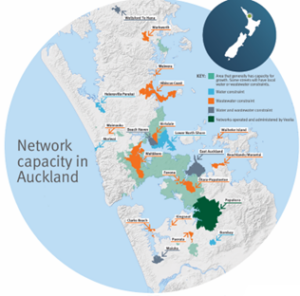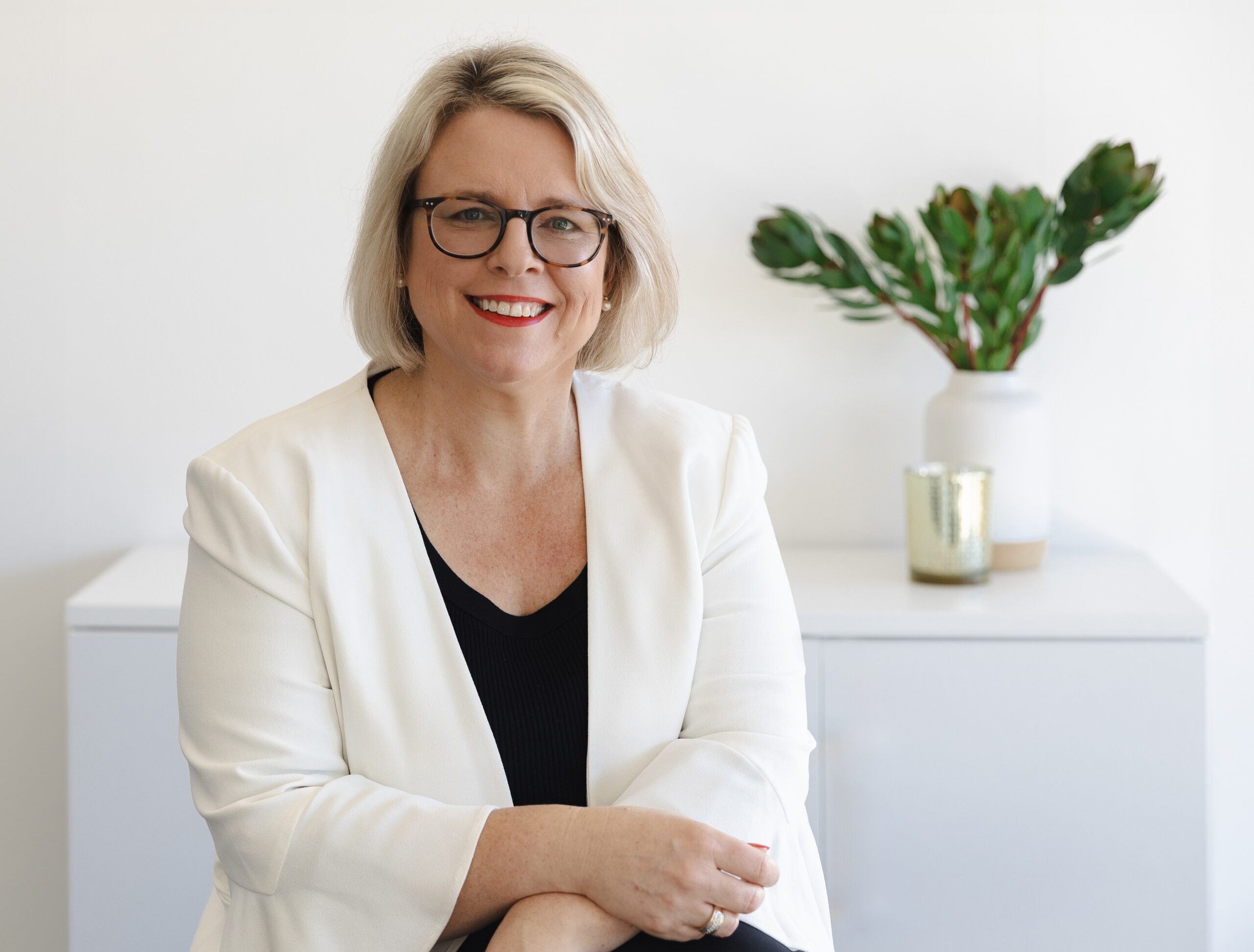In November 2024, Watercare unexpectedly identified large areas of Auckland that were subject to water and/ or wastewater constraints.
These are areas that are live zoned for development, and the constraints also related to development that was permitted and didn’t require resource consent. The implications are wide reaching, and in some cases mean development can’t go ahead now.
What areas are affected?
The main areas affected are:
-
- Ōtara/Papatoetoe
- Favona
- Beachlands/Maraetai
- East Auckland
- Parts of Waitākere
- Beach Haven/Birkdale
- Lower North Shore
- Hibiscus Coast
- Warkworth
 You can find out if your site’s affected using the Watercare GIS maps here. This map does identify constraints at a catchment level- the actual constraints may be different between and across the actual catchment. In some cases, there is limited capacity and in others there is no capacity. Watercare have provided access to a tool which at a high level will help you confirm if a connection can be provided in a specific capacity- constrained area. You can access this here.
You can find out if your site’s affected using the Watercare GIS maps here. This map does identify constraints at a catchment level- the actual constraints may be different between and across the actual catchment. In some cases, there is limited capacity and in others there is no capacity. Watercare have provided access to a tool which at a high level will help you confirm if a connection can be provided in a specific capacity- constrained area. You can access this here.
Does this affect my development?
If your sites located in a constraints area and you propose a new connection, you’re affected. This includes for example a new dwelling, subdividing new sites and changing the use of a building/ site from non- residential even when the same meter will be used. Interestingly, Council have confirmed it does not restrict the construction of new minor dwellings, sleepouts or home occupations which will share or utilise the existing connection.
How is your resource consent process affected?
 If your sites located in a constrained area, you’ll need to consult with Watercare. You need to do this even if your development doesn’t require resource consent (is a permitted activity). Before a resource consent application is lodged, you will need confirmation from Watercare that your development can be serviced now, or that Watercare should be able to service it within 5 years (which is the default resource consent term). You will need provide this information when the resource consent application is lodged, or the Council will reject it as “incomplete”.
If your sites located in a constrained area, you’ll need to consult with Watercare. You need to do this even if your development doesn’t require resource consent (is a permitted activity). Before a resource consent application is lodged, you will need confirmation from Watercare that your development can be serviced now, or that Watercare should be able to service it within 5 years (which is the default resource consent term). You will need provide this information when the resource consent application is lodged, or the Council will reject it as “incomplete”.
If the service will not be available for more than 5 years (i.e. longer than a normal resource consent term), the council have indicated they may not agree to a consent term of over 5 years. This will be assessed on a case-by-case basis, and you should discuss with your planner.
Ultimately, these new servicing constraints issue are something you need to discuss with your planner and engineer early in the process.
When are upgrades happening?
In most instances, there are plans to upgrade the infrastructure in these areas, but the timeframes for this varies significantly. You can find estimated timeframes here. You’ll see that some are as far away as 2045 (Beachhaven), so you really do need to check this early in development planning.
Watercare has the ultimate say
Ultimately, approval of connections in these constrained areas is up to Watercare. Watercare will be relying on its bylaw, the Water Supply and Wastewater Network Bylaw 2015, which sits outside any building or resource consent process (i.e. Watercare can still say no, even if you have the other consents).
Need planning advice you can trust?
With over 35 years of combined experience processing resource consent applications, including being a current planning consultant to Auckland Council, we have significant experience on both sides of the fence. Get in touch to discuss your project- hello@planningplus.co.nz, (09) 427 9966.
 Hannah Thomson
Hannah Thomson
Hannah Thomson is Director of Planning Plus® and has over 20 years of resource management experience working in both local government and the private sector. This includes five years at Rodney District Council in roles including Senior Planner and Team Leader.
Hannah has a wide range of experience including commercial, rural, residential and coastal development and subdivision on small to large scales and appearances at both Council and Environment Court as an expert witness for mediation and hearings. Hannah has assisted Councils with policy development and has also assisted private individuals with submissions to Council.
Disclaimer: Please remember that the advice in this blog is general in nature and based on information and advice available at the time of writing. We recommend you get your own planning advice. As with all our blogs this information is preliminary in nature only and we have used our best endeavours to ensure it is correct at the time of writing. It is not intended to substitute for your own investigations or obtaining specific advice from professionals. Planning Plus LtdTM is not liable in any way for any errors or omissions.


